How Many Solar Panels Do You Need to Charge Your EV?

Electric vehicle (EV) adoption is rising, and it’s not hard to see why. These sleek, quiet, and clean vehicles make it convenient for everyday consumers to take action on climate change. However, the growing popularity of electric vehicles has also led to a higher demand for charging solutions that are both efficient and sustainable.
One solution is solar panels for EV charging, which harnesses the power of the sun to generate clean energy. But those who are considering solar panels might ask, “How many solar panels do you need to charge your electric car?” Let’s explore this question and the benefits of charging a car with solar panels.
How Many Solar Panels Do You Need to Charge Your Electric Car Fully?
On average, it can take anywhere from 5 to 12 home solar panels to fully charge an EV, with most consumers tending to need between 7 and 9 panels — though this may vary depending on your car’s energy consumption, solar panel efficiency, and available sunlight. To obtain the exact number of panels you’ll need for your specifications, you need to know how efficiently your panels produce energy, the wattage of your panels, and how much electricity your car uses each year.
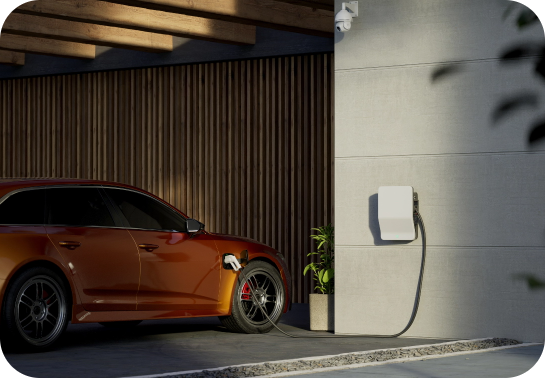
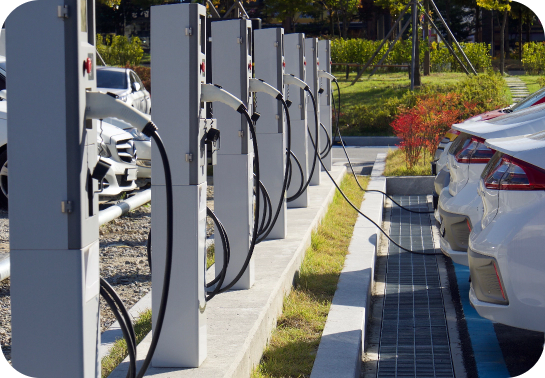
Home vs. Public Charging
EV owners will require both at-home and public charging at one point or another, although most charging is done at home to minimize downtime. These days, however, public charging stations are available at commercial locations, along highways, and in many parking lots for the convenience of those who have long-distance commutes. But when comparing home vs. public charging, it’s important to consider the cost-effectiveness and sustainability aspects.
Charging an electric car with solar panels at home can bring great benefits. Installing a charging station at home and using solar energy can potentially decrease charging expenses. This method of home charging also enables energy independence since you generate your own electricity, lessening your dependence on the grid and potentially reducing your utility bills. In contrast, public charging stations may involve fees or subscription costs, although they provide convenience when on the go or when home charging is unavailable.
Why Charge an EV with Solar Panels?
Investing in an EV is a great first step in reducing reliance on fossil fuels. However, charging it puts strain on the electrical grid, which is sometimes sourced from fossil fuels, the same kind of energy you were trying to get away from with your gasoline-powered vehicle. On the other hand, charging your EV with a home solar system ensures your car is powered with 100% sustainable energy, and it’s also a lot more convenient than wandering around in search of a public charging station. That’s why we recommend charging your car with solar panels — so you can feel good about your all-around clean energy alternative.
How Many Solar Panels are Needed for Your EV?
Determining the average kilowatt-hours (kWh) your electric car consumes daily is essential in calculating the number of solar panels required for your vehicle. To do this, you can refer to the energy efficiency information provided by your EV manufacturer, which is typically measured in kWh per 100 miles. For example, the Tesla Model 3 has an average efficiency of 4.1 miles per kWh, indicating that it consumes approximately 24.4 kWh to travel 100 miles. Using this information, you can estimate your car’s daily energy needs and determine the number of solar panels required to power it.
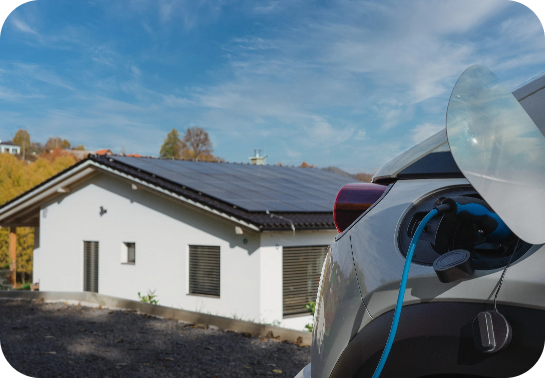
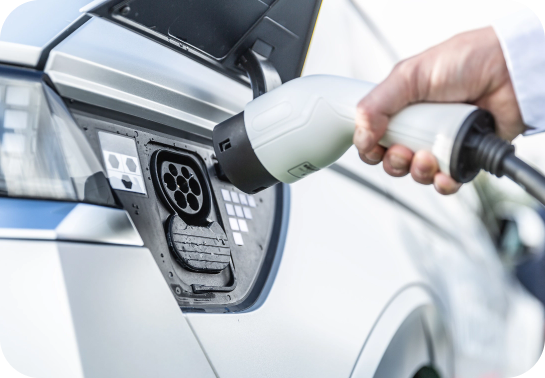
Everyone’s Solar EV Charging Situation is Different
It’s worth mentioning that each person’s solar panel for EV charging needs are distinct, so there’s no simple answer to, “How much solar do I need to charge my electric car?” People in different parts of the country receive varying amounts of sunlight daily, travel different distances, have solar panels with different wattages, and drive EVs with differing efficiencies. That’s why, to get an accurate estimate, it’s advisable to consult with a solar energy professional who can assess your specific circumstances and provide personalized recommendations.
How to Charge an EV with Solar
Charging your car with solar panels involves a few key steps.
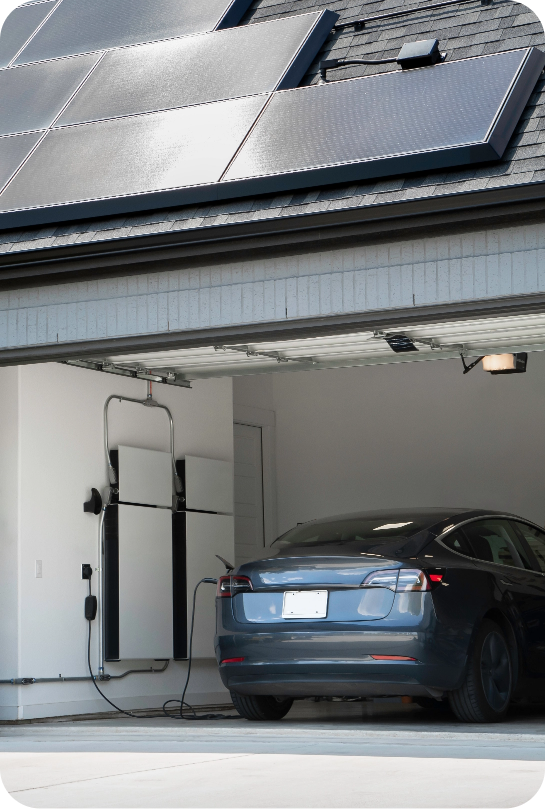
Cost of Solar EV Charging vs. Other Fueling Options
When considering solar EV charging, comparing the costs with other fueling options, such as charging from the grid at home or using public charging stations, is important.
Charging From the Grid at Home
Charging an electric car from the grid at home typically costs less initially than installing solar panels. However, the long-term costs may be higher due to fluctuating electricity rates and the reliance on non-renewable energy sources.
Public Charging Stations
Using public charging stations is convenient for longer trips or when you don’t have access to home charging. However, the cost per kilowatt-hour may vary, and it can be more expensive than charging with solar energy in the long run.
Charging With Home Solar
Charging an electric car with solar panels harnesses renewable energy and reduces long-term fuel costs. While the upfront cost of installing solar panels may be higher, the savings on fuel expenses can offset this over time, making it a cost-effective and environmentally friendly choice.
Go Solar With Axia
Partner with Axia to charge your EV with solar and enjoy the benefits of cost savings, energy independence, and environmental sustainability. We pride ourselves on delivering reliable and efficient solar solutions with American-made solar panels backed by Qcells to ensure you can confidently charge your EV and know you’re making a positive impact on the planet. Our commitment to customer satisfaction enables you to take a sustainable journey toward clean transportation and a greener future.
Solar Panel EV Charging Frequently Asked Questions
Have Questions? We’re Here to Help
If you’re planning to purchase an electric vehicle (EV) and don’t have solar panels installed on your home yet, it’s worth considering going solar first. Investing in solar panels before purchasing an EV can provide a sustainable, cost-effective charging solution. By installing solar panels, you can generate clean energy — not only for your electric car but also for other household needs. This can maximize your energy savings and reduce your overall carbon footprint. Consult with a solar energy professional to help you assess the best approach for your situation.